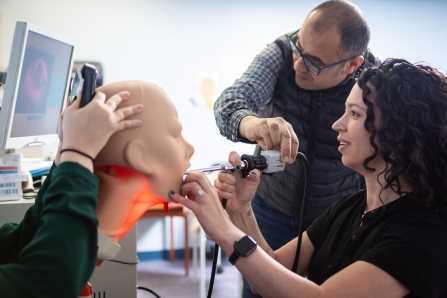Clinics and Programs
We offer a full spectrum of specialty clinics to serve the needs of our community and to meet our educational mission.

Contact Us
UB Audiology and Speech Language Pathology Clinic
University at Buffalo
52 Biomedical Education Building, South Wing
South Campus
Buffalo, NY 14214-8016
Telephone: (716) 829-3980
Fax: (716) 829-3974